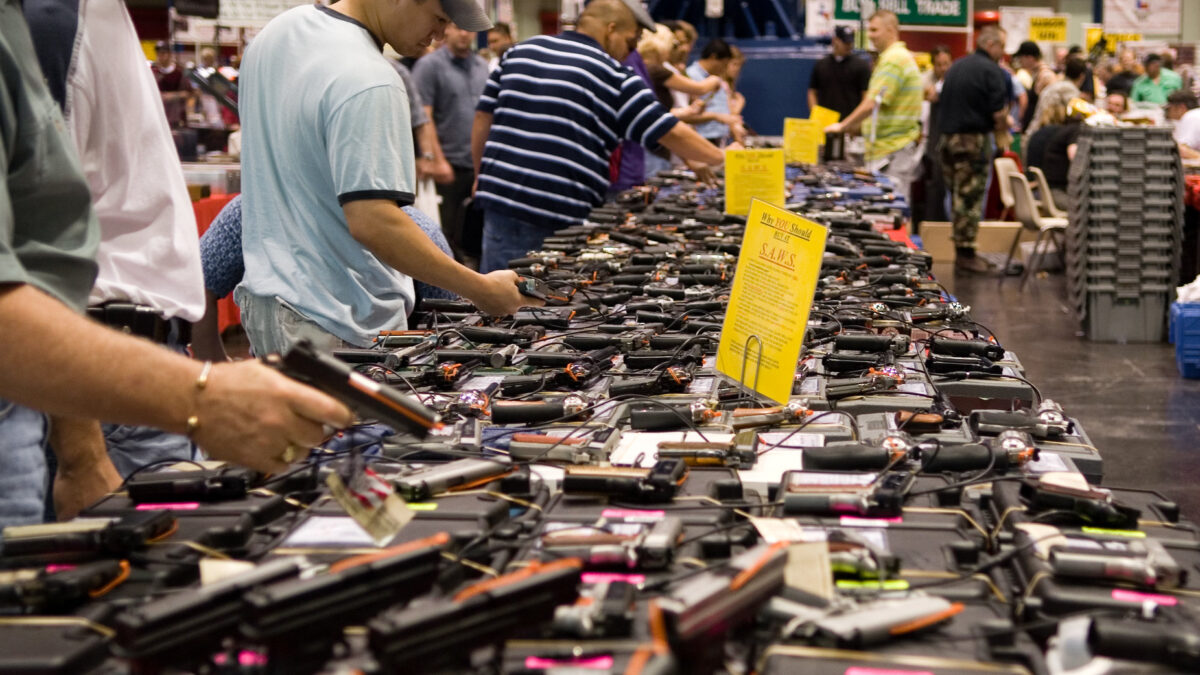
The Wall Street Journal recently picked up on one of the hottest controversies in hunting today: the use of long-range shooting systems, which allow hunters to kill animals from as far as a mile away. In response, some states are floating proposals to ban the use of this long-range equipment.
Long-range shooting systems are computerized devices attached to rifles that measure the distance, elevation, and wind effects of a potential shot. They allow hunters who are using high-powered ammunition to achieve unprecedented accuracy from thousands of yards away. While a traditional high-powered rifle might allow accurate shooting within 300 yards, long-range shooting systems have led to incidents such as 12-year-olds shooting bull elks at 1,300 yards.
Unsurprisingly, many observers—both hunters and non-hunters alike—have recoiled at the idea of hunters resembling military snipers more than sportsmen. States like Nevada have proposed bans on different versions of long-range shooting systems.
Yet it is far from clear that this is an issue requiring government intervention. In fact, hunting already has a culture of private ordering and self-regulation in place which uses ethical norms like the fair chase doctrine to address precisely these sorts of issues.
Fair Chase Doctrine Addresses Long-Range Shooting
A culture of self-governance may seem odd in today’s hyper-regulated America. But contrary to what most Americans think, regulations do not need to come solely from the government. Rather, systems can be put in place by private organizations, trade associations, or industry participants. This is especially true for non-commercial pursuits like hunting, which have time-honored traditions of sportsmen policing themselves in the field and adhering to ethical standards beyond the law itself.
The hunting ethic most relevant to extreme distance shooting is the fair chase doctrine, which was developed and maintained by the legendary Boone and Crockett Club, a 129-year-old hunting and conservation organization that was founded at a sportsmen’s dinner hosted by Theodore Roosevelt. The Club defines fair chase as “the ethical, sportsmanlike, and lawful pursuit and taking of any free-ranging wild” animals “in a manner that does not give the hunter an improper advantage over such animals.” Part of this ethic includes not “overwhelming game species with human capabilities.” (One of the most famous examples of the fair chase doctrine in action was Roosevelt’s refusal during a 1902 hunt to kill a bear that his guide had tied to a tree.)
Given this history, it should come as little surprise that Boone and Crockett issued a 2014 position statement on extreme distance shooting and its tension with fair chase, noting that long-range shooting “takes unfair advantage of the game animal,” since it allows hunters to shoot from so far away that “there is no motivation to risk engagement with the animal being hunted” and “effectively eliminates the natural capacity of an animal to use its senses and instincts to detect danger.”
Private Organizations Encourage Sportsmanlike Conduct
Boone and Crockett is also responsible for creating the official scoring system for North American big game trophies, which is recognized as the universal standard for measuring world records. For a hunter’s kill to qualify for the record books, the hunter must adhere to the fair chase doctrine and eschew any equipment that “overwhelms the natural capacities” of an animal. Requiring hunters to adhere to fair chase in order for their trophies to qualify for the record books acts as a deterrent against the use of long-range shooting equipment.
Not every hunter is chasing world records, of course. Which is why it is important that this culture of fair chase is entrenched on the local level as well. In 2014, for example, Commemorative Bucks of Michigan, the state designated non-profit record-keeper for whitetail deer, removed a state record buck from its books when evidence emerged that the animal was not taken in a manner consistent with fair chase (the deer had been raised and shot inside a game preserve rather than in the wild). As any sportsman can attest, stripping this hunter of his state record was a far greater punishment than merely hitting him with a fine.
Fair chase extends even further to the small towns across America’s heartland that host county-wide contests or “buck poles” for the largest local trophy animal taken during the annual hunting season—these contests usually use the Boone and Crockett scoring system and many require adherence to fair chase to qualify. Like Boone and Crockett, these state and local contests can and should clarify that any animal killed with a long-range shooting system is ineligible for scoring and local record keeping. This would help ensure that even hunters of smaller, non-world-record animals are deterred from using extreme distance equipment.
Self-Regulation Won’t Be Perfect, But Will Be Adequate
Of course, this system of self-regulation will not completely eliminate the use of long-range shooting systems. Perhaps some hunters will not care about official records or scoring, or will choose to use extreme distance equipment for meat hunting or target practice. But most hunters dream of potentially landing that once-in-a-lifetime trophy mount. Even the average Joe who heads out to the family deer stand each fall is hopeful that this might be his year to bag the biggest buck in the county. If he’s using equipment that will disqualify him from the local buck pole, he risks losing bragging rights among his buddies even if he does land that monster deer.
In the end, complete deterrence does not need to be the goal. It is important to remember that even long-standing hunting laws, such as the prohibition against poaching, are not perfect at deterring every single would-be violator.
To be sure, there are many important hunting laws on the books, from laws meant to ensure certain species are not over-hunted, to safety regulations prohibiting the use of high-powered rifles in densely populated areas. But not every problem necessitates a new law. Absent a true public safety rationale for additional legislation, the fair chase ethic can provide enough of a deterrent effect to prevent the truly widespread proliferation of long-range shooting equipment.
Extreme distance shooting is clearly pushing the boundaries of hunting. But we can rest assured that there are already private systems that are well-positioned to address the problem.









